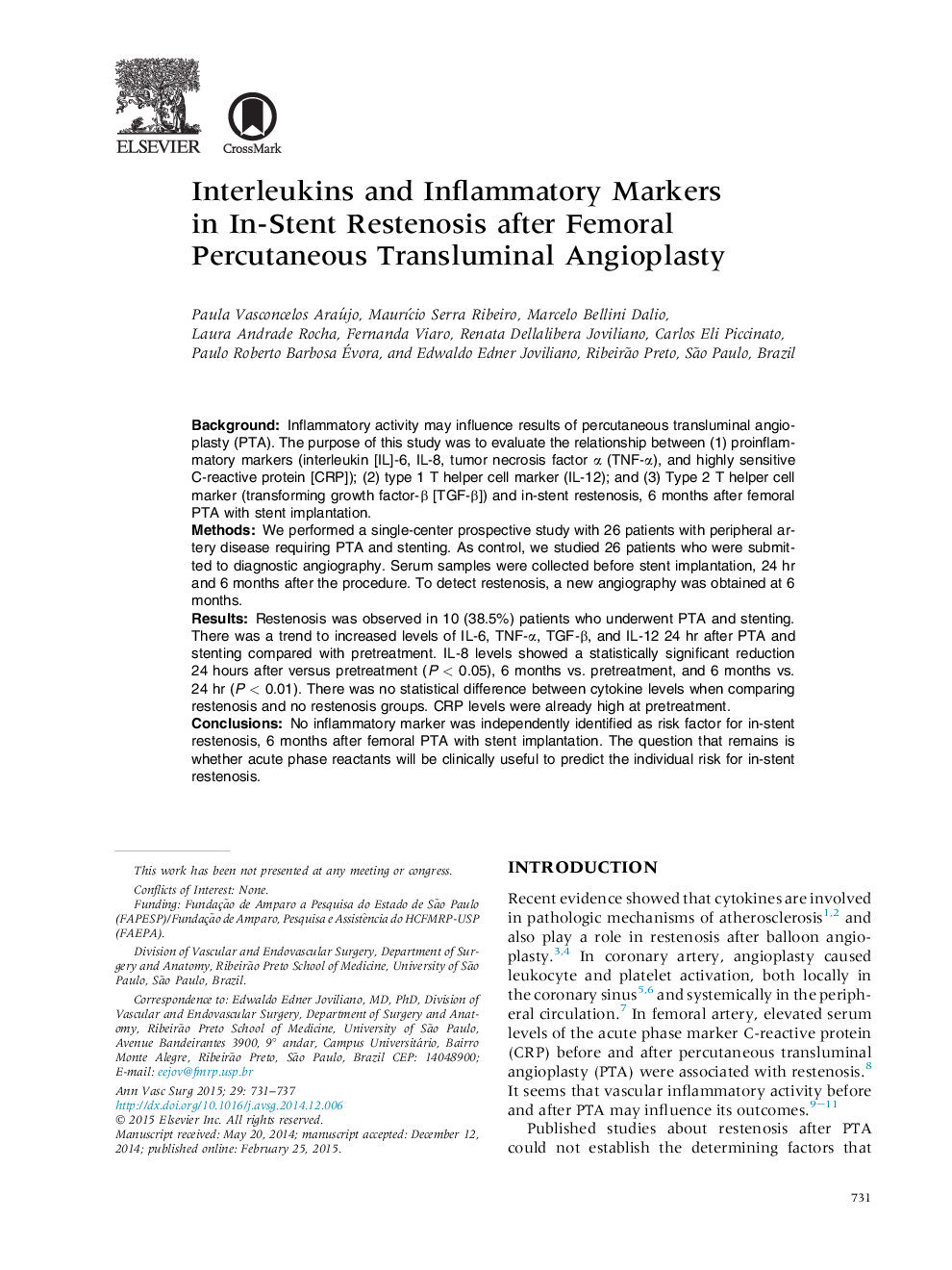| Article ID | Journal | Published Year | Pages | File Type |
|---|---|---|---|---|
| 2885975 | Annals of Vascular Surgery | 2015 | 7 Pages |
BackgroundInflammatory activity may influence results of percutaneous transluminal angioplasty (PTA). The purpose of this study was to evaluate the relationship between (1) proinflammatory markers (interleukin [IL]-6, IL-8, tumor necrosis factor α (TNF-α), and highly sensitive C-reactive protein [CRP]); (2) type 1 T helper cell marker (IL-12); and (3) Type 2 T helper cell marker (transforming growth factor-β [TGF-β]) and in-stent restenosis, 6 months after femoral PTA with stent implantation.MethodsWe performed a single-center prospective study with 26 patients with peripheral artery disease requiring PTA and stenting. As control, we studied 26 patients who were submitted to diagnostic angiography. Serum samples were collected before stent implantation, 24 hr and 6 months after the procedure. To detect restenosis, a new angiography was obtained at 6 months.ResultsRestenosis was observed in 10 (38.5%) patients who underwent PTA and stenting. There was a trend to increased levels of IL-6, TNF-α, TGF-β, and IL-12 24 hr after PTA and stenting compared with pretreatment. IL-8 levels showed a statistically significant reduction 24 hours after versus pretreatment (P < 0.05), 6 months vs. pretreatment, and 6 months vs. 24 hr (P < 0.01). There was no statistical difference between cytokine levels when comparing restenosis and no restenosis groups. CRP levels were already high at pretreatment.ConclusionsNo inflammatory marker was independently identified as risk factor for in-stent restenosis, 6 months after femoral PTA with stent implantation. The question that remains is whether acute phase reactants will be clinically useful to predict the individual risk for in-stent restenosis.
